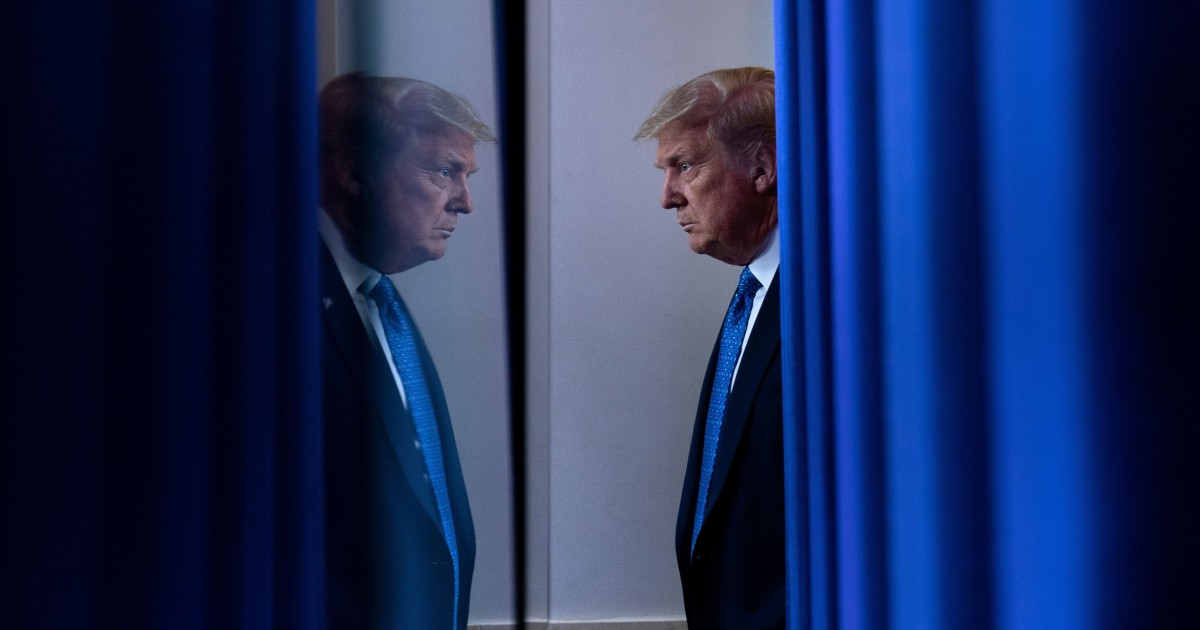The grand jury that is analyzing in New York whether to bring criminal charges against former President Donald Trump for paying the silence of the porn actress Stormy Daniels in the 2016 election campaign will not deal with this case but another at its meeting this Thursday in the Manhattan courthouse, NBC News reported, citing three sources familiar with the matter.
The members of the grand jury meet Monday, Wednesday and Friday, but the district attorney of Manhattan, Alvin Bragg, did not summon them yesterday.
The case appears to be headed for the final vote on whether the grand jury will indict Trump anyway.
Trump's lawyer in the classified papers case will testify before a grand jury
March 23, 202300:29
Trump assured last weekend that he was going to be arrested on Tuesday, after it was learned that law enforcement is preparing security plans to deal with possible protests by supporters of the former president.
In the last few hours, the former president defended himself again on his Truth social network, assuring: “Everyone says that there is no crime here.
I did nothing wrong!" "Everything was invented by a convicted madman with zero credibility, "he added, referring to his former lawyer Michael Cohen, convicted precisely for payments to the porn actress and now a witness for the Prosecutor's Office.
Checks signed by Trump
The case revolves around the payment of $130,000 that Cohen made to the actress days before the 2016 elections, according to the lawyer at the request of the former president because Daniels was going to make public an alleged sexual affair with the businessman in 2006 (which he denies). ).
[What do we know about the criminal case against Trump and what would happen if he is accused]
When he was already in the White House, Trump returned the money to Cohen.
Hush payment isn't a crime
, but how the Trump Organization documented that spending might be.
According to Mark Pomerantz, a former prosecutor who worked on the case and recently published a book recounting his experience, Cohen submitted false invoices in 2017 referencing a "retainer agreement" and seeking payment of $130,000.
The lawyer later received a series of checks signed by Trump himself when he was already president.
New York prosecutor who can indict Trump asks grand jury to meet this Thursday
March 23, 202300:22
The legal problem, according to Pomerantz, is that there was no retainer agreement: the operation was carried out to cover up the payment in exchange for Daniels' silence.
As a result, the alleged false documentation of “legal fees” appearing on the books of the Trump Organization could lead to a prosecution invoking New York state law that makes it a crime to falsify business records.
This offense is technically a misdemeanor, but the grand jury is evaluating whether the false records were created with the intent to commit and conceal another crime, which would elevate the case to a felony.
In this case, it is not clear what the second offense is that the Manhattan District Attorney's Office alleges.
Some legal commentators have suggested that the prosecutor may only pursue the misdemeanor.
Others have argued that it would be a huge waste of time and resources, and would give Trump the power to paint the case as weak.
If the grand jury does not vote to indict Trump on a felony, it could order the prosecutor to indict him on the misdemeanor.
[Why isn't Biden talking about Trump's possible impeachment?]
Trump has dismissed the investigation as politically motivated because Bragg is a Democrat, but his lawyers' arguments in court will likely be different and could revolve around Trump's intent at the time the payments were made.
New York law requires an “intent to defraud” in order for a jury to convict on a false business records charge.
Lawyers could argue that there was never any intention to defraud the Trump Organization.
In theory, it is possible that Trump could end up in jail if he is indicted and convicted.
The charge of falsifying business records in the first degree is a felony that can carry up to four years in prison.
Actually, it's not certain that Bragg would recommend that Trump serve time.
Ultimately, if he is found guilty, it will be up to a judge to decide the appropriate sentence.

